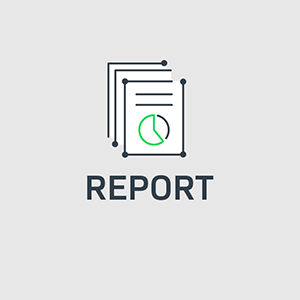
It looks like a great deal. For just $189.99, you can download the latest version of the Microsoft Office Professional 2019. Indeed, it seems too good to be true, but that offer is just one of many on several websites that sell discounted software.
As TechRadar Pro recently reported, “They all sell Microsoft Office for cheap, absurdly cheap. Softwareonlinedeal sells Microsoft Office Professional 2019 for $189.99 for a download and product key. Microsoft sells it online for $439.99 – that’s a near 57% discount.” One of those sites really upped the ante with the “deal” of a lifetime: Microsoft Office 365 for five devices and 5TB for Mac and PC for only $1.68. If you go to the official Microsoft site, Office 365 Home for six users and 1TB storage costs $99.99 per year.
The $1.68 offer was a steal, in more ways than one. The software is pirated. Many IT executives see right through such cutthroat prices, recognizing that pirated software, while saving a few dollars, opens organizations to a world of risk. But some organizations that want to cut corners or lack diligent IT oversight take that risk, figuring they can handle any potential problems with the cheap software. Other organizations – and “bargain hunters” – simply don’t know they are getting pirated software because the pirate ecommerce sites look so much like authorized reseller sites.
Business use of unlicensed software is higher than you might expect. Revenera data shows forensic evidence of unlicensed software use in 194 of 195 countries. Indeed, in its most recent global software survey, BSA | The Software Alliance found that 37 percent of all software on personal computers globally is unlicensed.
Software companies can drive down unlicensed use and generate new license revenue with targeted campaigns led by their sales teams to convert pirates to paying customers. Employing the help of compliance analytics enables software vendors to see when and where their unlicensed software is installed, who is using it, and subsequently reach out to the infringing organizations. Instead of immediately initiating legal action, vendors often forge an amicable relationship with the infringing users by reminding them of the business and security benefits of licensed software.
For instance, almost immediately after a new product launch, software companies issue patches to shore up development and security bugs that are spotted by users. But users of unlicensed software likely never receive those initial patches, nor any other patch – ever. Unlicensed software remains static, while cyberthreats constantly evolve. What was secure software one day can be susceptible to malware and other security threats the next day. This impacts the end users immediately but can also damage the software vendor’s brand reputation.
While licensed software users benefit from a vendor’s vigilance and security updates, unlicensed software users are left to their own devices to prevent data leaks and other attacks. The 2018 BSA study estimated a malware attack can cost a company an average of $2.4 million and about 50 days to resolve.
Another way to thwart unlicensed use is utilizing Piracy Response, the in-app messaging feature of Revenera’s Software License Compliance solution. Perfect for software applications with lower average annual contract value (ACV), you can start an automated conversion campaign by warning unauthorized users of the risks of unlicensed software. By tailoring messages to fit the user’s type of operating system, location and use of specific features, you can be specific about how malware and other security risks can lead to operational peril and financial loss. You can detail new cyberthreats and remind that the risk of such damage diminishes greatly with the security updates provided by licensed use.
With smart, measured outreach, you can convince unlicensed software users that the deal they got was too good to be true, and that the benefits of being a paying customer far outweigh initial cost savings, the risk of malware, and more.


